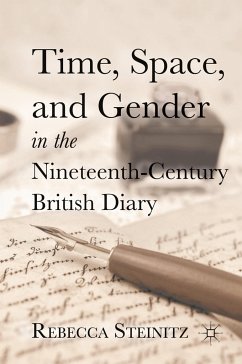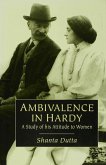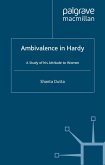Through close examinations of diaries, diary publication, and diaries in fiction, this book explores how the diary's construction of time and space made it an invaluable and effective vehicle for the dominant discourses of the period; it also explains how the genre evolved into the feminine, emotive, private form we continue to privilege today.
"In this well-researched and cogently organized book, Steinitz gives us nineteenth-century diaries in manuscript and print, fact and fiction. Actual diaries were often shared among intimates, kept with equal assiduity by men and women, and invested in both introspection and external observation. Fiction feminized the diary, depicting it as a private repository of feeling that could then become a narrative device for disclosing secrets. Filled with excellent insights about an impressive range of materials, this is the most comprehensive study of the British nineteenth-century diary to date." - Sharon Marcus, Orlando Harriman Professor, Columbia University and author of Between Women: Friendship, Desire and Marriage in Victorian England
"Steinitz s study of the nineteenth-century British diary, and of the widely varied uses to which diarists, novelists, and cultural panjandrums put the genre, is impressively panoptic and tightly focused all at once. You ll be struck byhow many diarists Steinitz manages to zoom in on, and instructed by how much sense she makes of them, revealing, among much else, that the form s powers as a cultural practice often doomed its practitioners to a sense of failure; that its operations over space as well as time rendered it indispensable both as a figure for expanding empire, and as a hedge against the unprecedented social and physical change impelled by that expansion; and finally, in the book s most sustained argument, that the still-familiar conceptual link between diaries and the feminine was widely promulgated precisely because it concealed a more intricate and inconvenient truth about the genre s practical androgyny. Steinitz accomplishes all this with such prestidigital dexterity that while it s hard to see exactly how she does it, it s easy to savor how well." - Stuart Sherman, author of Telling Time: Clocks, Calendars, and English Diurnal Form, 1600-1795
"Steinitz s study of the nineteenth-century British diary, and of the widely varied uses to which diarists, novelists, and cultural panjandrums put the genre, is impressively panoptic and tightly focused all at once. You ll be struck byhow many diarists Steinitz manages to zoom in on, and instructed by how much sense she makes of them, revealing, among much else, that the form s powers as a cultural practice often doomed its practitioners to a sense of failure; that its operations over space as well as time rendered it indispensable both as a figure for expanding empire, and as a hedge against the unprecedented social and physical change impelled by that expansion; and finally, in the book s most sustained argument, that the still-familiar conceptual link between diaries and the feminine was widely promulgated precisely because it concealed a more intricate and inconvenient truth about the genre s practical androgyny. Steinitz accomplishes all this with such prestidigital dexterity that while it s hard to see exactly how she does it, it s easy to savor how well." - Stuart Sherman, author of Telling Time: Clocks, Calendars, and English Diurnal Form, 1600-1795








